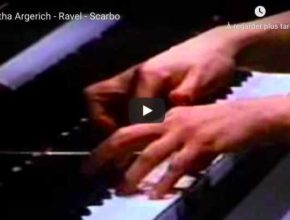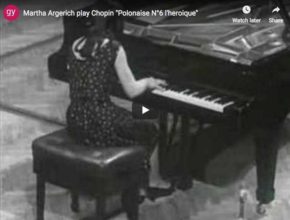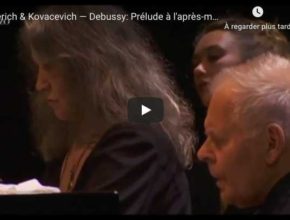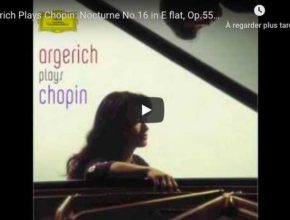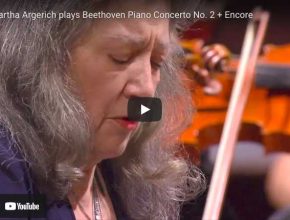
Tag: Argerich
Wikipedia – Facebook – On Tour
Martha Argerich was born in Buenos Aires, Argentina. Her paternal ancestors were Catalans based in Buenos Aires since the 18th century. Her maternal grandparents were Jewish immigrants from the Russian Empire, who settled in Colonia Villa Clara in the Entre Ríos province. The provenance of the name Argerich is Catalonia, Spain.
Martha Argerich started playing the piano at age three. At the age of five, she moved to teacher Vincenzo Scaramuzza, who stressed to her the importance of lyricism and feeling. Argerich gave her debut concert in 1949 at the age of eight.
The family moved to Europe in 1955, where Argerich studied with Friedrich Gulda in Austria. Juan Perón, then the president of Argentina, made their decision possible by appointing her parents to diplomatic posts in the Argentine Embassy in Vienna. She later studied with Stefan Askenase and Maria Curcio. Argerich also seized opportunities for brief periods of coaching with Madeleine Lipatti (widow of Dinu Lipatti), Abbey Simon, and Nikita Magaloff.

